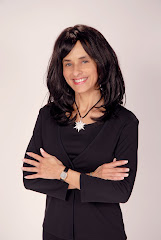Here is a wonderful article about cultural pride, mother tongue, language acquisition, heritage, looking different, identity, family values, marketable skills, feeling out of place, regret and hope. It’s a bit long, but well worth the read.
The Language Barrier by Mayka Mei
September 17th, 2008 Posted in Featured Writers
This is about hyphenation and growing up Asian-American. A cliche fallback title could have been “Lost in Translation,” but the actual situation isn’t one of translation or mistranslation. It’s not as if I was born in China and had troubles adjusting a Chinese lifestyle to an American setting. I was born in the U.S. and have intellectual struggles upholding the heritage(s) I am assumed to represent.
Michael Winerip recently wrote an article titled “In Any Language, a Full Plate,” in The New York Times. Though articles about raising kids with cultural pride are not novelties in themselves, they probably pop up once a year or so, reading an article about raising Asian American children is rare. Even rarer: That the article appears in a nationally respected news source, one that is not based in the Bay Area - and even covers Asian American families who are not from the Bay (or LA).
In Winerip’s story, he interviews an Asian American couple who live on the East Coast. The story’s core dilemma: Raising their son Christopher to be in touch with his Chinese and Korean roots. The most tangible anecdote of this hybrid struggle is letting Christopher quit Chinese language lessons. At the age of 3.
As the weeks passed, she and her husband felt that the atmosphere was more competitive than they’d expected. “The parents seemed determined to learn Chinese with their kids,” she said.
“It was very intimidating,” said Mr. Chung, a Columbia graduate.
“It really was,” said Ms. Liu, a Wellesley graduate. Nor did Christopher — a very bright little fellow who is able to name every dinosaur known to modern paleontology — seem to have much of a gift for Chinese. “He wasn’t absorbing much,” said his father. “From the 1st to the 12th lesson, there didn’t seem to be much difference.”
Once I read about Christopher’s experience, I immediately sent it to every member of my family. “This story hits home,” I wrote in the subject line. You see, I don’t speak my parents’ native tongue. The language you’re reading is the language I write, talk, swear, and dream in.
My older sister does not speak Mandarin. My twin brother speaks a little. I speak some amount in between my sister and my twin’s proficiency, which is very very little. Whatever lick of the language any of us picked up was fostered well after the key language-learning ages. “Asiatic” languages are especially difficult to pick up after a certain age because they require different parts of the brain that romance-based languages don’t even trigger. (I would cite this but I read the article way before there was del.icio.us. Also, I am not Wikipedia.)
When I was around the kindergarten age, my parents enrolled us in Saturday Chinese School. In south Fremont, that was the place to be. All my other classmates seemed to know each other from learning Mandarin together every weekend (the Chinese ones, anyway). Meanwhile, my parents (who immigrated into the U.S. relatively early) spoke English at home. As my sister, brother, and I sat in class not knowing what directions the lady in the front was communicating to us, I felt a strong urge to cry. I wanted to leave. Everybody else knew each other and I didn’t even know the words that were coming out of the teacher’s mouth. I remember my sister being protective of me, explaining to the teacher that we didn’t speak Chinese at home. My brother also picked up on my discomfort. My only saving grace was the break of recess, where I could talk to my friends in English. But that doesn’t mean I wanted to go back to class afterward.
I suppose I was always destined to be an outspoken person, because after a couple of Saturdays of ultimate alienation, I had a heart-to-heart with my mom. (I was prone to alternating spells of being precocious and being a princess.) She recalls it every once a season or so:
You came up to me, with a very serious look on your face, and you said, “Mommy, we need to talk.”
I said, “Okay, Mayka. What do you want to talk about?”
“I don’t want to go to Chinese School anymore.”
And you were so serious about it, you nearly broke my heart. So from then on, you didn’t go to Chinese School.
But what she and I later felt about this decision was regret.
A six-year old’s sad, puppy dog eyes can break your heart, but I really wish my mother put her foot down and made me “learn the language.” As it is, Mandarin is as foreign a thing to me as the use ofwhitening powders. It is not “my language.” When people ignorantly retort “You don’t know your own language?” they pull at a very specific heartstring. They trigger “Mandarin is not ’my’ language,” as a snappy response. To this day, I have difficulty curbing my defensiveness in reaction to that subject.
I took five years of Mandarin throughout high school and college. I lived in Shanghai for a summer. But going through the motions of these experiences does not guarantee any solid foundation or building of skill. The Mandarin programs I went through were poor and we walked over our teachers like the privileged Asian American kids we were. Shanghai was one of the worst experiences of my life and even six years later, I feel no urges to go back. I’m ashamed of my lack of understanding of Mandarin. I’m too shy to speak it. And, unfortunately, like any other young adult trying to be independent, I haven’t made the time to improve it. Excuse, excuses, but “Life is what happens to you when you’re busy making other plans.” Mandarin isn’t anywhere in my life, plans, or priorities right now.
I personally ask myself the same questions Christopher’s parents are battling right now. Do my kids need to learn Chinese history to keep their heritage intact? What if the children are multiracial? How will we raise them then? I don’t consider myself “Whitewashed,” but those who only know two things about me: that I’m Asian and that I don’t speak any Asian languages at home, are often left to draw that conclusion themselves. Would it be a disgrace to let my children choose for themselves the way my mom let me? How are they going to know who they are?
“One time a boy saw Christopher and said, ‘Look, a Chinese boy,” recalled Ms. Liu. “Christopher says, ‘Where?’ I want to do something to make him understand his background and make sure that he’s confident about it.”
Mayka Mei is American, born Chinese. She lives in Berkeley, California where she dances with Kawayan Folk Arts (Pilipino) and Dancers Without Boundaries (hip-hop).
This post originally appeared in theMaykazine on September 11, 2008.
- - - - -
Saturday, September 20, 2008
Subscribe to:
Post Comments (Atom)






.jpg)
.jpg)




No comments:
Post a Comment